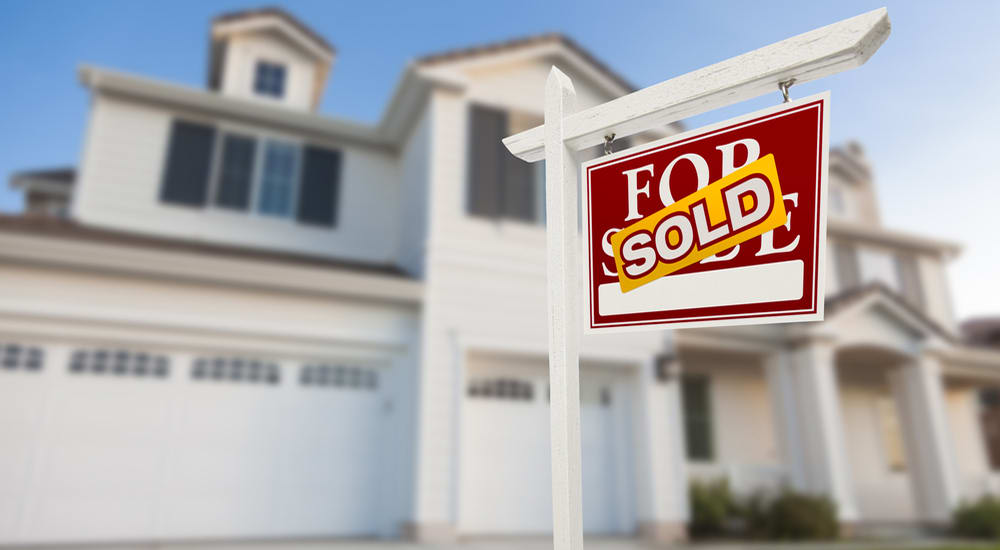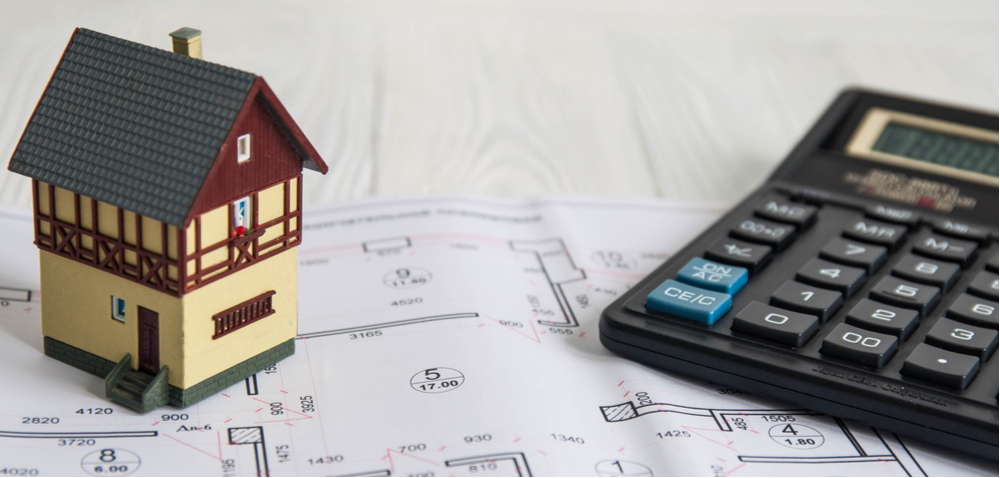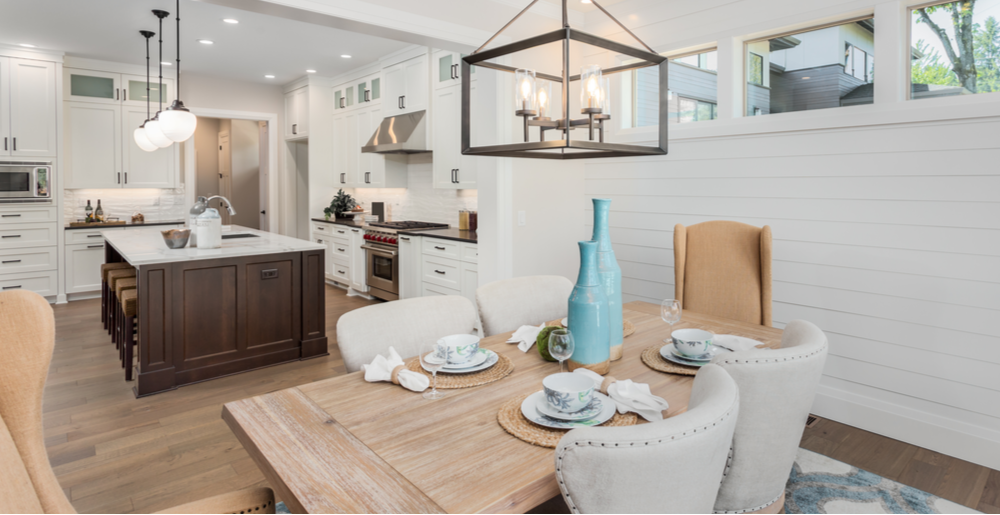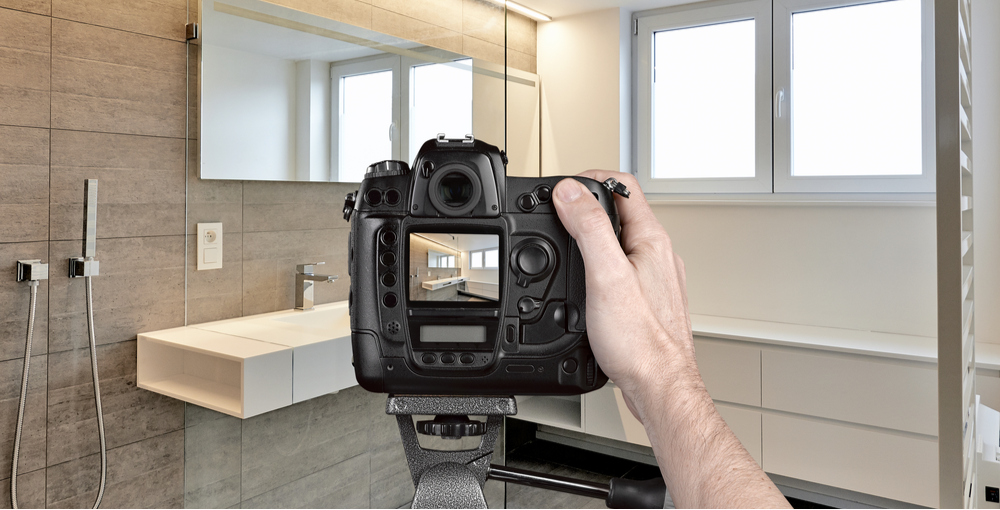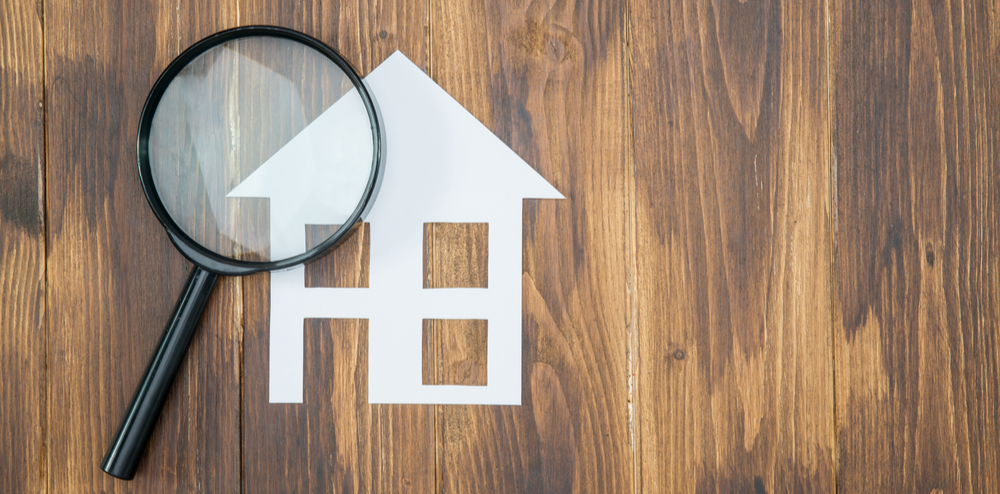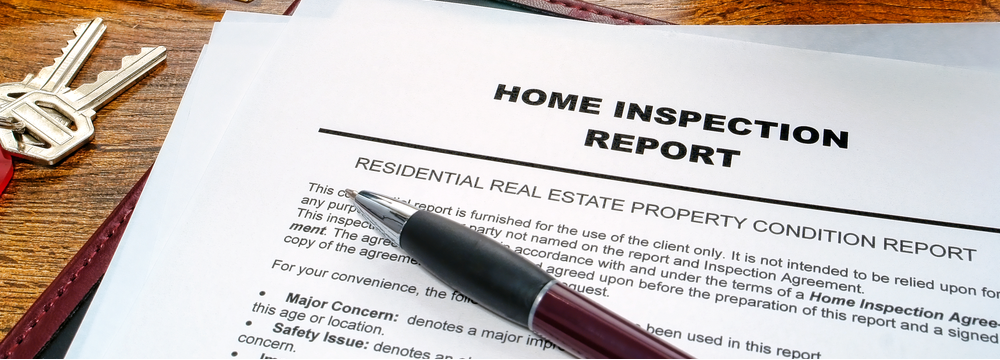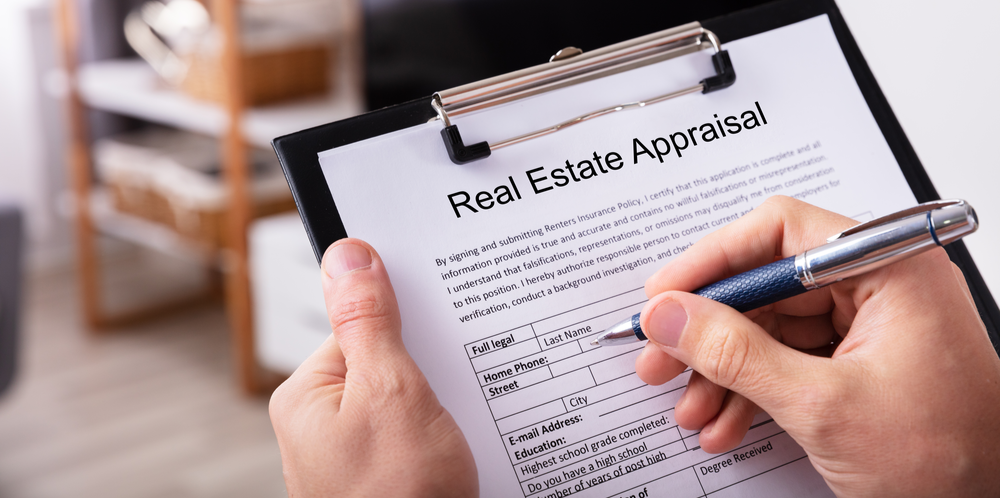Whether you're simply moving within Barefoot Beach or have decided to head elsewhere, it's a big decision and one you want to make sure you get right. Unfortunately, only 64% of sellers nationwide report being happy with the process of selling their homes.
With so much at stake, you deserve peace of mind. After having guided hundreds of clients through the process, in this post I'll give you everything you'll need to navigate selling your home as efficiently and profitably as possible. You can be happy with the process of selling your home.
Where Do I Start When Selling My Barefoot Beach Home?
When homeowners begin flirting with the idea of selling their homes, it inevitably brings up countless questions.
Am I really ready to move?
What would my home even sell for?
What would I actually walk away with?
How long would it take?
What time of year should I list my home?
And the list goes on, and on, and on.
It's enough to make even an experienced seller's head spin.
To get things off to a good start, let's first get you some data – when it comes to selling your home, knowledge is definitely power.
How Much Will Your Home Sell For?
This question can in some cases be much easier to answer than in others.
In neighborhoods that have homes priced closer to the
median home price nationwide, it's typically easier to value a home, as there are more comparable sales.
In more expensive neighborhoods, like
Barefoot Beach, it can often be more challenging, as there are typically fewer true comparable sales than normal.
Not to worry though – there are a number of ways to get a considerably accurate estimate of what you'll end up selling your home for.
Zestimate Or Other Automated Valuation Model (AVM)
Automated Valuation Models use artificial intelligence and vast amounts of real estate data to produce an estimate of a particular property's value.
All of this data allows these systems to more often than not get an accurate representation of your home's value. From time to time, though, and particularly in markets like Barefoot Beach where there aren't as many comparable sales, they can be significantly off the mark, so their estimates cannot be taken as gospel.
Consult With Your Real Estate Agent
In markets like Barefoot Beach, it's best to rely more on the local professional than a Zestimate or other AVM.
A Real Estate Agent who has specialized in a particular neighborhood throughout their career will be better able to account for the unique characteristics of your property than even the most advanced algorithm.
Be wary of Real Estate Agents who promise an overly generous price for your home. While you'll obviously want to get top dollar,
overpricing ultimately doesn't work in your favor. It can lead to the home taking longer than necessary to sell with no guarantees you won't end up having to reduce the price anyways.
How Much Will You Walk Away With?
It's important to have a full understanding of not just how much your home will likely sell for, but also how much of that you'll actually walk away with after closing costs, taxes, and a handful of other considerations.
Let's take a look at each in turn:
-
Do you have a mortgage balance remaining on the home? If so, are there any fees for paying it off early?
-
What will your Real Estate Agent commission be? This can vary from state to state, so be sure to check with your Real Estate Agent.
-
Any miscellaneous fees? You'll also be charged fees by your attorney for reviewing the contracts and the title agency for conducting the title transfer, etc. These costs are typically less significant, but can still make a material difference in what you walk away with.
-
Knowing how much you'll actually walk away with can be one of the most important data points you'll need to make the best decision for you and your family, so it's worth investing the time to figure it out.
When Should I List My Home?
What's that saying? “Timing is everything”? Well, it definitely applies to real estate, too.
Knowing when to list your home can have a significant impact on the success of your sale, particularly in a seasonal market like Barefoot Beach.
In Barefoot Beach, many potential buyers are in town during the winter months, so understandably you want your home to be on the market during that time frame.
Having said that, over the years the Southwest Florida population has become much more consistent year-round. Every year, more and more residents decide to fully part ways with their northern abodes, making Naples or Bonita Springs their full-time residence.
That means that if you do need to list your home during fall, summer, or spring, there are still plenty of buyers to be found.
Consult With Your Real Estate Agent About Local Inventory Levels
As great as it would be to give a one size fits all answer, the best time to sell your home depends on a number of factors, not just the month of the year.
Depending on market conditions it may make sense to list at a time that normally wouldn't be optimal. That's why it's ultimately best to
consult with your Real Estate Agent so they can consider all the variables and develop a strategy that's suited both to your specific needs and the conditions present in the market.
Should I Sell My Home Before I Buy?
Which came first – the sale or the purchase?
The final thing you need to consider with respect to the timing of listing your home is whether you should sell it before purchasing your next home.
This will vary greatly from one buyer to the next, so this is another question that can be helpful to consult both your Real Estate Agent, mortgage banker, and perhaps even your financial advisor.
Even if you speak to your mortgage banker and find out you're qualified to purchase your new home before selling your current home, you may want to think twice before doing so.
You need to consider the possibility that you may end up owning both homes for some length of time while you're waiting for your current home to sell, thus leaving you paying two mortgages at the same time.
If you're unwilling to put yourself in that position, there are a handful of things you can do to mitigate the risk:
-
-
Wait to start searching for your next home until you've accepted an offer on your current home. One option to buy you some time between selling this home and moving into your next is to negotiate your staying in your current home after closing as a renter. That will allow you to get the sale behind you before turning your focus to finding a new home.
-
When you find your next home and write an offer, have your Real Estate Agent make your offer contingent on your current home selling. If you're in a seller's market, this might not be possible because the seller may already have another offer that doesn't have any contingencies, but it's still worth exploring.
How Should I Sell My Home?
So you've analyzed the different factors involved and you've made the decision that it's time to make your move (pun intended).
What next? First, you'll need to determine how you're going to go about selling your home.
Primarily, you have three main options to consider. Let's take a look at each in turn.
Engage A Real Estate Agent
This is of course the first thought most people have, and that's not without reason. Real Estate Agents take what can be an incredibly complex, stressful, and time-consuming process and make sense of it, guiding you every step of the way.
Specifically, Real Estate Agents bring a number of skill sets to the table that make your life easier when it comes time to sell your Barefoot Beach home. Here are some of the most important:
-
As we just discussed, Real Estate Agents can help tremendously with the work you do before even deciding whether you want to sell, such as inventory analyses, developing a pricing strategy, and figuring out when to list.
-
Real Estate Agents know what sells and what doesn't. That means they can guide your efforts to declutter your home, make any small or major repairs, and bring in the best professionals to stage and photograph your home.
-
Any Real Estate Agent worth their salt is a professional marketer. They'll help you get your home in front of as many people as possible, ensuring your home sells as efficiently as possible and for top dollar.
-
Not only are Real Estate Agents doing traditional marketing, but they can also do open houses and bring in buyers from their network, ensuring an even wider pool of potential buyers.
-
With all those potential buyers seeing your property, when you get your first offer(s) your Real Estate Agent will help you negotiate the best price and terms for your home.
-
Real Estate transactions produce no shortage of complex and nauseating paperwork. Your Real Estate Agent has seen it all countless times and will be able to help you navigate it, ensuring your interests are protected.
Unfortunately, not all Real Estate agents are created equally…That's why the next step is determining which Real Estate Agent you want to engage to sell your home.
Find The Ideal Real Estate Agent
The key to finding the best Real Estate Agent for your home is seeking out whoever is considered to be the local expert.
Real Estate Agents tend to focus on a particular neighborhood or part of town, that way they can develop a niche and conduct the lion's share of business in that niche. This also means that they end up knowing far more about that neighborhood than other Real Estate Agents. They know the pricing trends, the likely buyers, and what gets those buyers to sign on the dotted line.
Not to toot our own horn, but in Barefoot Beach, we're the local experts. I moved to Barefoot Beach in 1989 and became a Real Estate Agent immediately after that. Since then, I've helped hundreds of families buy and sell homes in Barefoot Beach. We also own the site you're reading this post on right now, BarefootBeach.com, which consistently ranks on the first page of Google results for keywords related to Barefoot Beach Real Estate.
This expertise combined with our passion for this incredible community we call home uniquely positions us to provide sellers with the most stress-free, efficient, and profitable selling experience possible. If you're ready to sell your Barefoot Beach home,
get in touch today!
Sell Your Home On Your Own
Your second option for selling your home would be to forgo the assistance a Real Estate Agent provides and
sell your home on your own.
In 2018, only 7% of the homes marked for sale were for sale by the owner. The reason for this is everything we mentioned above – the marketing skills, knowledge of local trends, and expertise with respect to the paperwork all combine to make most homeowners happy to engage a Real Estate Agent when it comes time to sell their home.
Sell Your Home To An iBuyer
Need to sell fast and without any headaches? You may want to consider selling to an iBuyer.
iBuyers are large, typically nationwide homebuyers backed by a large pool of money and advanced computer algorithms that determine what your home is worth. Once they establish that, they'll make you a below-market offer that they can typically close on in just days or weeks. Even
Zillow now offers this service (albeit not yet in Barefoot Beach).
The pros are that
it's quite possibly the easiest way to sell your home, having no showings to deal with, no lengthy closing period, and very little in the way of inspections. The cons are that
you're going to have to be willing to take a significant price cut. Buyers make their money by only buying homes at below-market prices so they can immediately turn around and sell the home for a profit.
So if speed and ease are your priorities, this can be a great option, but if you're looking for top dollar and are willing to wait a little longer for it, get in touch with a Real Estate Agent and get the ball rolling!
How Should I Prepare My Home For Sale?
Alright, we're moving right along!
You've determined it's time to sell, found your dream Real Estate Agent, and you're ready to take the plunge. Now what?
Well, there are a number of simple things you can do to improve the odds that your home sells quickly and for top dollar.
Make Select Repairs/Upgrades
You probably have a handful of repairs or upgrades you're considering making before selling. The question is, which ones should you actually make?
The short answer? Only the repairs that buyers are actually willing to pay extra for.
This is where your Real Estate Agent comes in and is another reason you want to go with the local expert – they will know best what's hot in that particular market. What paint colors, fixtures, etc. will make your home competitive against what else is available on the market?
This part can be challenging for many homeowners because they're changing things about their home that perhaps they designed themselves and that they particularly like. But unfortunately, selling a home isn't about personal preferences – it's about mass appeal. So you need to be willing to trust the expert and make the changes that they suggest to ensure a sale that's both efficient and as profitable as possible.
This begs the question, which repairs typically attract the most buyers?
Look for the quick wins – fresh paint (both inside and outside), improving landscaping, new carpets, changing light bulbs to LED, etc. These items will make a huge impact on the curb appeal and overall appearance of the home, all without breaking the bank.
For larger repairs, only make them if they're absolutely necessary or if they're something that a buyer would likely ask you to fix prior to closing. This includes things like a broken furnace, plumbing issues, a leaky roof, etc.
You need to keep in mind that selling your home is basically a popularity contest – you're competing against other homes that might not have those issues, so if you're unwilling to fix these things, buyers will be more likely to simply go with the home that doesn't have those issues.
Decluttering
There's nothing quite like a move that makes you realize just how much stuff we tend to accumulate over time. Take advantage of this moment.
Buyers will appreciate a clean, organized home and it will make them feel like they can move right in. Not to mention, it will also give you peace of mind knowing you've already put in the work to move out of your home as easily as possible come that time.
The other thing to keep in mind is after you're done decluttering, you'll want to make sure you have the home as clean as possible. It's worth bringing in a cleaning service to do a deep clean – again, buyers want to be able to envision themselves living there and in order for most people to do that, they want the space to be clean and fresh.
Air fresheners or candles are a worthwhile investment too.
Scents are strongly linked to memory, so if your prospective buyers come in and are immediately greeted by a pleasant smell, they'll be that much more likely to remember your home among the countless others they see.
Stage Your Home
Imagine for a moment – you're a model preparing for a runway event.
The photographers, fashion bloggers, designers and everyone else who matters are all there, eagerly awaiting your entrance onto the runway.
Suddenly you appear, but to the sound of a deafening silence.
You're wearing raggedy old jeans, and run-down shoes and haven't even showered much less put makeup on.
Selling a home that hasn't been staged properly is the equivalent of that runway appearance. You're not even giving your home a chance.
Having said that, staging doesn't have to be anything extravagant. Odds are you've already got some of your own furniture still there, so if your furniture and artwork are modern and already present the home well, you may not need to do anything other than the decluttering and cleaning we discussed in the last section.
If you have your furniture organized and laid out in a particular fashion that doesn't keep the floor plan open and inviting, consider rearranging it. But if you've already moved out or if you haven't updated the furnishings in your home in ages, it will likely make sense to spend the money to get it appropriately staged.
Again, it all gets back to the buyer being able to visualize themselves living there. You can even take this a step further and go with staging packages that allow the buyer to purchase the furnishings along with the home, thus making the home truly “move-in-ready”.
Take High-Quality Photos & Videos
Here's where you get the payoff from all the blood, sweat & tears you put into repairing, cleaning, and staging your home. Now you get to show off your finished product to the world.
Think of the online home search as an online dating app – you're not going to set up a date (showing) with someone who has terrible photos. Instead, your photos need to make your place stand out from the endless sea of competition and make buyers want to drop everything and request a showing.
This is yet another opportunity to turn to your trusty Real Estate Agent. Not only do they know the best professional photographer to use, but they'll also gladly pay for them on their own dime because they know just how much more likely the home is to sell quickly when it has professional photos and videos to go along with it.
One thing to keep in mind is that not all markets are alike. For example, it'd be a little challenging to do a drone tour of most apartments or homes in New York City. When you're selling a home in Barefoot Beach, though, drone tours are considered to be a must.
Take a look at this drone tour of Barefoot Beach to get an idea of how well these types of videos can show off a Barefoot Beach home.
Make It Known
Alright, now comes the fun part!
Now you get to finally let the world know that your home is for sale. Your Real Estate Agent will have a broad marketing plan to ensure the right people find out.
This will include posting on social media, the MLS, buying ads in magazines, posting them on websites that potential buyers are likely to visit (wink, wink,
BarefootBeach.com), conducting open houses, and privately sharing the news with their network of buyers.
Conduct Showings & Open Houses
Making progress! Now that you've gotten the word out, you'll start getting buyers who want to take a look in person.
Not only is this great because you'll potentially get an offer, but even if you don't get one your Real Estate Agent can solicit crucial feedback from the buyers who don't end up submitting an offer. You'll then be able to develop a game plan to combat any weaknesses you might not have seen before (for example, maybe more people are complaining about the paint than you had initially expected, so maybe it now makes sense to spend the money to have it painted).
The main thing with showings is to try to maintain as flexible of a schedule as possible. We know – easier said than done. But keep in mind that each show could be the one that leads to an offer, so do your best to keep the home clean and clutter-free (especially after all that hard work to get it to this point), and try to ensure your Real Estate Agent will be able to access it more often than not.
This is especially true during winter, as that's the busy season for Barefoot Beach, so showings can often pop up without much time to prepare.
Another way to coordinate this can be to develop a schedule with your Real Estate Agent so they can plan (sometimes multiple) showings in advance and you'll be able to rest easy knowing when exactly you need to be out of the home.
Seal The Deal
Congrats! After all of you and your agent's hard work, you've received a handful of offers!
Unfortunately, we've still got a ways to go before we're at the finish line, but the light is definitely at the end of the tunnel.
This is also where the process can get particularly stressful and confusing, so throughout it, you'll want to rely on your Real Estate Agent or an attorney for their guidance.
In order to get it right, there are a handful of things you'll want to ensure you do. Let's take a look at each in turn.
Select the Best Offer
If you're fortunate enough to have multiple offers, it can be tempting to just go with the highest price. Unfortunately, that can lead to some unintended consequences.
The National Association of Real Estate Agents reports that 24% of home closings get delayed due to anything from financing issues to inspections, to attorney review. When you're selecting an offer, you want to try to pick the one that you think has the highest probability of successfully closing at the highest price in an efficient time frame.
So if one buyer has a higher price but has a financing contingency, and another buyer has a slightly lower price but is paying cash and will close in 30 days, it might be in your best interest to go with the second offer.
Post 2008, US banks became much more stringent in how they underwrite home mortgages. You now have to check every box in order to get approved for a loan, so while a buyer may be confident they can get the necessary financing to purchase your home, they may be in for a rude awakening when they actually go to apply.
The other great thing about having multiple offers is it gives you much more leverage in negotiations. For example, it's possible the buyer with the highest offer may not actually need financing, it's just their preference. So maybe you submit a counteroffer at their same offering price, but with no financing contingency, thus making the offer more likely to actually close on schedule.
Even if you don't have multiple offers, you can likely still negotiate on things like closing timeframe, price, furnishings, closing credits, etc. This is your one chance to get the deal you want, so depending on how much negotiating leverage you and your Real Estate Agent think you have, don't be afraid to speak up.
Having said that, it still may make sense to consider lowering the price to attract some new attention. Or perhaps it's time to reconsider taking the plunge on those additional repairs you were debating. Have a frank discussion with your Real Estate Agent and they'll be able to guide you through the options at your disposal.
Accept An Offer & Submit It To Escrow
Look at you! You've got an accepted offer and you're seeing dollar signs.
Now it's time to send the offer over to the title company and let the paperwork armageddon begin.
The title company is responsible for orchestrating the transfer of the deed from you to the buyer. They're confirming that you are the rightful owner of the property and that it's free from any liens or encumbrances that would negatively affect the buyer.
Although it's rare for homes in Barefoot Beach, title issues can from time to time hold up sales from closing on schedule. Therefore it's best to get the title report as soon as possible, that way if there are any issues, you and your attorney can get to work resolving them as soon as possible.
Prepare for the Home Inspection
Buyers will request an inspection within 10 days of their offer being accepted. From there, the inspector will come out to your property to identify any potential issues with the home. This includes anything structural, health-related, or mechanical issues.
Inspections typically take a couple of hours but can be longer if the buyer wants to conduct other, more specialized inspections. The inspector will then write up a report over the following 3-4 days that documents his findings.
Most homes (even newer ones) will have their fair share of issues, so expect a number of things to be brought up in the report. If you have any major problems with your roof, plumbing, HVAC systems, structural issues, electrical problems, bug or rodent infestations, or any water damage, be prepared for your buyer to negotiate on those points and request repairs.
This is where market conditions really come into play. If you're in a seller's market where there's very little inventory and buyers are fighting over homes, your buyer's Real Estate Agent will advise them that they could lose your home to another buyer if they make too many demands. In that case, you can likely push back pretty hard and refuse to make many concessions.
If, on the other hand, it's a buyer's market and you're not sure when the next buyer might come along if this deal were to fall through, you'll likely need to bite the bullet and make the repairs (or at least the most important ones) in order to get the deal across the finish line. The other option if you prefer not to go through the headache of fixing the issues yourself is to offer the buyer a closing credit so they can fix the problems themselves.
Consult with your Real Estate Agent to determine how much negotiating leverage you truly have.
Next Up, The Appraisal
Once you're past the inspection and any repairs you decide to make, the buyer and their lender will want to make sure the home is actually worth what they're paying for it. In order to accomplish this, they'll request an
appraisal.
This is unfortunately yet another point at which the closing can get delayed or sometimes thrown completely off track. That's because the lender will want to make sure that if they're lending $1,000,000 to the buyer, for example, the home isn't actually worth $900,000. So if the property doesn't “appraise out,” the deal can sometimes fall apart.
Luckily, though, there are a number of things you can do to influence the outcome here.
-
Make sure your home is spotless on the day of the appraisal. You want to treat it like it's a showing because in a way it is. Appraisers are humans too, so you want them to feel at home in your house because as much as they're trained to be objective if they get the warm & fuzzies when they walk into your place, you're much less likely to have any problems with the appraised value. You can even consider small gestures such as leaving out warm cookies. It may sound silly, but it's all about making an impression.
-
Ensure you or your Real Estate Agent are there for the appraisal. Ultimately, everything in life is a sale. Rather than letting the appraiser come to their own conclusions about your home, you or your Real Estate Agent should be there to point out the highlights that make your property unique and valuable. Appraisers tend to get into a routine and can often miss certain features that might make a significant difference in the value of the home, so make sure you're telling the property's full story.
-
Ask for an appeal. If your appraisal doesn't come back at the price you need it to, not all hope is lost. You or your Real Estate Agent can request an appeal to have them take another look at things. During this process, you want to provide as much evidence as possible that your home is worth what you say it's worth. Submit comparable sales, a list of upgrades, other offers you received, and anything else you think might help you make your case – the sale of your home depends on it.
-
Ask your buyer to switch lenders or consider seller financing. If all else fails, you still have two options. First, you can ask your buyer to switch lenders. This isn't ideal because it will start the lending process over with no guarantee that the new appraiser will come to a different conclusion, but depending on circumstances it may make sense. The second option is to consider seller financing. That means that instead of the bank giving your buyer a mortgage, you would act as the bank. So rather than being paid your home's entire value upfront, you'd only receive their down payment and would then receive monthly mortgage payments until the property was paid off.

Prepare To Move Out By Closing
Once you're past the appraisal you've gotten through the hard part! Well, sort of now it's time to move.
Preparing ahead of time for your move will make life significantly easier when the big day finally comes. Luckily, you've already made some serious headway on this when you did all that decluttering.
Now it's time for the heavy lifting (figuratively and literally). Anything that can be packed away ahead of time should be. Try to keep things organized in such a way that will make unpacking and getting settled into your new home that much easier. Sharpies are your friend – make sure you're labeling each box with what's inside.
As it's likely that your home will sell in a busy season – when many other homeowners are moving as well – it's best to schedule your movers well in advance so you're not scrambling to find an available company at the last minute.
Closing with Confidence
After all of your hard work, you're finally about to take your seat at the closing table – congrats!
Before you pop the champagne, though, you've got a mountain of paperwork and a huge to-do list staring you in the face. Luckily, this is where your Real Estate Agent, title agent, and attorney come in to guide your every move.
Prepare Your House For The Final Goodbye
Breaking up is hard to do.
Unfortunately, once you and your buyer agree to a closing date, you need to start saying your final goodbyes to your beloved home. Unless you've made arrangements to stay in the home beyond the closing date as a renter, you'll need to be completely moved out by that date to avoid violating the contract.
Before heading out though, you've got a couple of last things to take care of:
-
Set up mail forwarding. Really this should be done as early as possible because it can take time for the USPS to get this fully set up in their system. Anything that goes to the home after the closing date may never end up making its way to you.
-
Notify others of your new address. When you move there will be a number of people who'd probably like to know that you've moved – your banks, insurance companies, utility providers, friends, family members, etc. Make sure to go down the list and let each know.
-
Gather any paperwork the new owners might need. If you've kept manuals and warranty information organized for your appliances, water heaters, or furnaces, place all of that in one spot out in the open so the new owners can find it easily.
-
Leave the keys and garage openers behind. Again, put them somewhere easily visible so the new owners will find them quickly.
-
Turn off shut-off valves. To prevent the possibility of a flood or fire before the sale closes, turn off the water and gas to the home. The last thing you need after all this hard work is a rude awakening to find out the house burned down after you moved out.
-
Give the house one last cleaning. Treat the new owners the way you would want to be treated. Don't leave them with a messy home that they'll need to clean before they can even think about moving in. Instead let them be greeted by a nice, clean space. If you really want to go above and beyond, you can leave behind a welcome gift and a personal note.
-
Move out. This is it. The time has come to say your final goodbye. While it will certainly be sad, the closing of this chapter will give way to the opening of a new one. Do one last run-through to double-check that you have everything, then say your final goodbye and head to closing.

The Closing
Let's make it official, shall we?
On closing day, consult with your Real Estate Agent an attorney as to whether you need to be present at the closing. In some states, it's not even necessary – your attorney can simply close on your behalf (note that in this case, you'll likely need to sign a power of attorney ahead of time, so make sure you're prepared) and spare you the dreadfully boring paperwork.
Even if you have that luxury as an option, you still might not be willing to leave it all out of sight. If you prefer to be at closing, just let your Real Estate Agent or attorney know and they'll tell you where you need to be.
If you're going to be present at closing, be sure to bring:
-
Photo ID for yourself and anybody else on the deed.
-
The deed.
-
The house keys.
-
Documentation of any repairs you made as part of the negotiations.
-
Mortgage payoff letter.
-
Property tax information including an escrow account statement if applicable.
-
Closing statement.
-
Inspection agreements.
Receive Your Proceeds
All that painful paperwork does at least have a payoff.
Once everything has been signed, you can finally collect your proceeds from the escrow company.
They'll either cut you a check or complete a wire transfer, either of which can be done right there at the closing table. Keep in mind though, that the check will have to clear at your bank, so if you're in a situation where you're trying to close on your next home and you'll need these proceeds available, you'll want to account for some time for your bank to clear the check. In that scenario, a wire transfer is going to be a much better option because the funds are available that same business day as long as the wire is completed before 5 PM EST.
One last thing to note about wire transfers (both the one your title company sends to you and the one your buyer sends to the title company) is that
wire fraud is on the rise. Do whatever you can to ensure that both wires are going to the right place. For more information,
read this helpful guide here.
Now You Can Pop The Champagne!
You did it! You've successfully closed a major chapter of your life and you're now onto the next adventure.
We sincerely hope this guide has been helpful in preparing for your upcoming home sale. If there's anything further you have questions on or if you'd like to learn more about how the Susan Owens Team can help you with selling your Barefoot Beach home,
please don't hesitate to get in touch.
Cheers!
